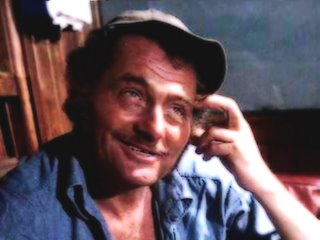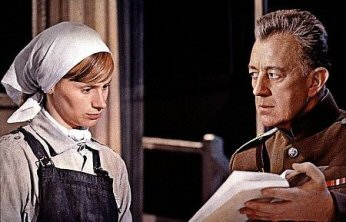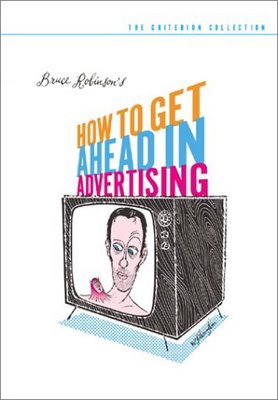Great Movie Monologues 5 - "Jaws"

Watching "Jaws" (1975) again, I am reminded - again - of how perfect a film it is. Performances, music & sound design, editing, and writing come together to make a masterpiece. In truth, none of these elements is perfect in the film - close, but not quite. But somehow they were brought together, on a production where everyone seemed convinced they had a disaster on their hands, to produce one of the greatest horror movies and greatest adventure movies.
At night, aboard the fishing boat, Orca, our three heroes - Brody, a police chief afraid of water; Matt Hooper, a young marine biologist; and Quint, a seasoned shark fisherman exchange comical stories about their scars. When Hooper asks about the scar of a removed tattoo on Quint's arm, actor Robert Shaw launches into one of his best scenes as an actor and one of the best monologues in movies:
QUINT: (pointing to the tattoo) That's the U.S.S. Indianapolis.HOOPER: (breathless) You were on the Indianapolis?BRODY: What happened?
QUINT: Japanese submarine slammed two torpedoes into her side, Chief. We was comin' back from the island of Tinian to Leyte. We'd just delivered the bomb. The Hiroshima bomb. Eleven hundred men went into the water. Vessel went down in twelve minutes. Didn't see the first shark for about a half-hour. Tiger. thirteen-footer. You know how you know that in the water, Chief? You can tell by lookin' from the dorsal to the tail. What we didn't know...was that our bomb mission was so secret, no distress signal had been sent. They didn't even list us overdue for a week. Very first light, Chief, sharks come cruisin' by, so we formed ourselves into tight groups. It was sorta like you see in the calendars, you know the infantry squares in the old calendars like the Battle of Waterloo and the idea was the shark come to the nearest man, that man he starts poundin' and hollerin' and sometimes that shark he go away... but sometimes he wouldn't go away. Sometimes that shark looks right at ya. Right into your eyes. And the thing about a shark is he's got lifeless eyes. Black eyes. Like a doll's eyes. When he comes at ya, he doesn't even seem to be livin'... until he bites ya, and those black eyes roll over white and then... ah, then you hear that terrible high-pitched screamin'. The ocean turns red, and despite all your poundin' and your hollerin' those sharks come in and... they rip you to pieces You know, by the end of that first dawn, we lost a hundred men. I don't know how many sharks there were, maybe a thousand. I do know how many men, they averaged six an hour. Thursday mornin', Chief, I bumped into a friend of mine, Herbie Robinson from Cleveland. Baseball player. Boson's mate. I thought he was asleep. I reached over to wake him up. He bobbed up, down in the water, he was like a kinda top. Up-ended. Well...he'd been bitten in half below the waist. At noon on the fifth day, a Lockheed Ventura swung in low and he spotted us, a young pilot - a lot younger than Mr. Hooper here - anyway, he spotted us and a few hours later a big ol' fat PBY come down and started to pick us up. You know, that was the time I was most frightened. Waitin' for my turn. I'll never put on a lifejacket again. So, eleven hundred men went into the water. 316 men come out, the sharks took the rest, June the 29th, 1945.(with a smile - or a sneer?)Anyway, we delivered the bomb.
Labels: Great Movie Monologues, horror, movies



 At the disheartening conclusion of
At the disheartening conclusion of 